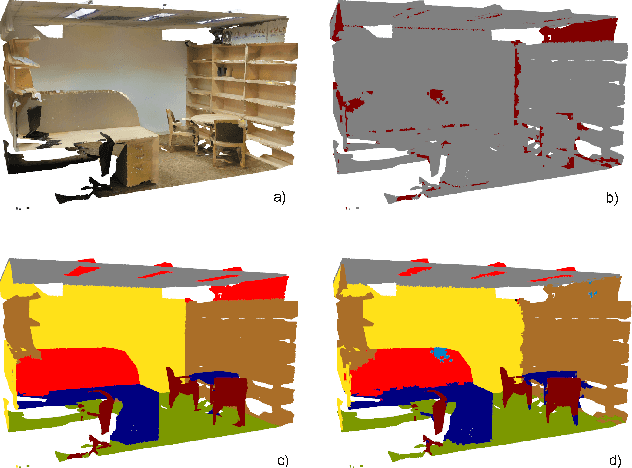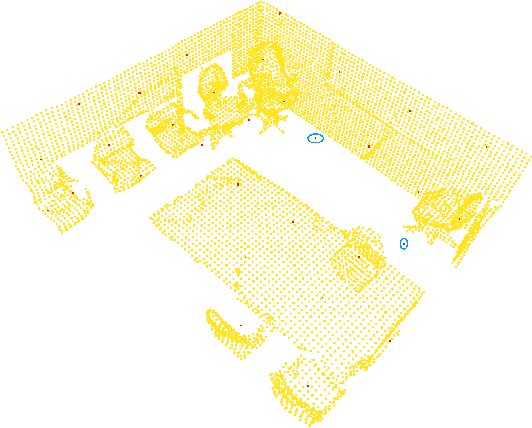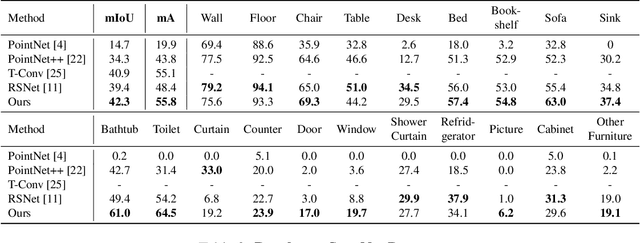DAR-Net: Dynamic Aggregation Network for Semantic Scene Segmentation
Paper and Code
Jul 28, 2019



Traditional grid/neighbor-based static pooling has become a constraint for point cloud geometry analysis. In this paper, we propose DAR-Net, a novel network architecture that focuses on dynamic feature aggregation. The central idea of DAR-Net is generating a self-adaptive pooling skeleton that considers both scene complexity and local geometry features. Providing variable semi-local receptive fields and weights, the skeleton serves as a bridge that connect local convolutional feature extractors and a global recurrent feature integrator. Experimental results on indoor scene datasets show advantages of the proposed approach compared to state-of-the-art architectures that adopt static pooling methods.
 Add to Chrome
Add to Chrome Add to Firefox
Add to Firefox Add to Edge
Add to Edge